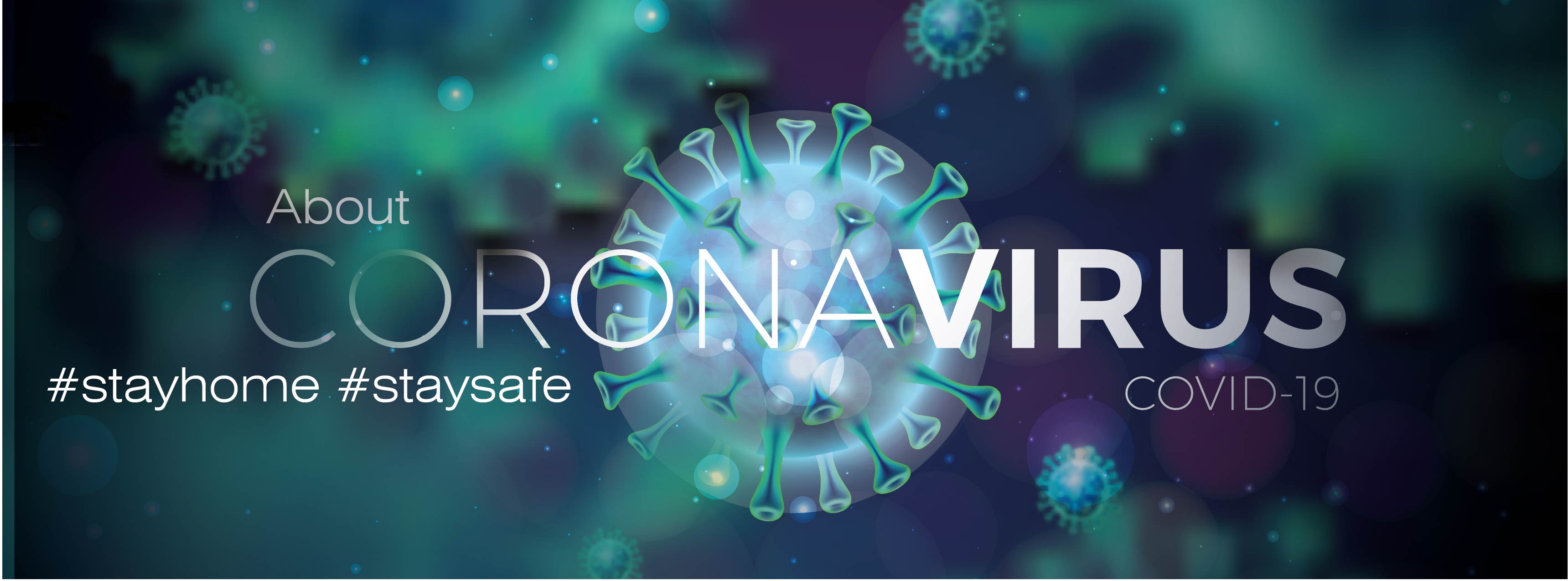What is a coronavirus?
Coronaviruses are a large family of viruses which may cause infections in animals and humans. In humans, several coronaviruses cause respiratory infections ranging from the common cold to more severe infections such as Middle East Respiratory Syndrome (MERS) and Severe Acute Respiratory Syndrome (SARS). The most recently discovered coronavirus is Severe Acute Respiratory Syndrome Coronavirus 2 (SARS-COV-2) that causes COVID-19.
What is COVID-19?
COVID-19 is a pneumonia-like disease with symptoms including fever, dry cough and shortness of breath that was first identified in Wuhan, China. The disease is caused by a new coronavirus, SARS-CoV-2.
How does COVID-19 spread?
People can catch COVID-19 from others who have the virus. It spreads between people who are in close contact with one another (within about 1,5 meter), through respiratory droplets. When an infected person coughs or exhales, those droplets are released. These droplets travel a very short distance then drop down onto surfaces and objects around the infected person. It is also possible for a person to get virus by touching a surface or object that has the virus on it and then touching their own eyes, nose or mouth.
Studies to date suggest that the virus that causes COVID-19 is mainly transmitted through contact with respiratory droplets rather than through the air.
Can COVID-19 be caught from a people without symptoms?
The risk of catching COVID-19 from someone with no symptoms at all is low. However, many people with COVID-19 experience only mild symptoms, esspecialy at early stages of the disease. It is therefore possible to catch COVID-19 from someone who has, for example, just a mild cough and does not feel ill.
What are the incubation period and symptoms of COVID-19?
The incubation period of COVID-19 is between 2 to 14 days. The most common symptoms are fever, tiredness,dry cough and shortness of breath. Some patients may have pains, nasal congestion, runny nose, sore throat or diarrhea.Most people recover without needing special treatment. In severe cases, it can cause pneumonia, severe acute respiratory infections, renal failure and death. People with fever, cough and difficulty breathing should seek medical attention.
Who are at the high risk ?
COVID-19 can make anyone seriously ill. But some people are at a higher risk for serious infections when they catch the new coronavirus. The people at high risk are those of older adults, and also those who have serious chronic medical conditions such as heart disease, lung disease or diabetes.
How can I protect myself from the COVID-19?
The best way to prevent catching from this virus is avoid contact with someones who carry it. In that point social distancing and hand hygiene get involved.
- Maintain at least 1 metre distance between yourself and others.
- Stay at home as much as possible
- Regularly wash your hands with soap and water or clean them with an alcohol-based hand rub.
- Avoid touching eyes, nose and mouth with unwashed hands.
- Cover your nose and mouth with a tissue or inside of your elbow when you cough or sneeze.
- Clean and disinfect frequently touched surfaces daily.
There is currently no vaccine to prevent new coronavirus.
Why is “social distancing” important ?
Social distancing is a public health practice to stop or slow the spread of a highly contagious disease. The goal is to prevent the spread of the virus. Social distancing measures aim to minimise contact frequency between individual. Such measures include limiting large groups of people coming together, closing schools or workplaces, canceling events, as well as deliberately increasing the physical space between people.
Anyone can be infected, and anyone can transmit this virus to someone else. The person may not have symptoms, and yet they can be a vehicle for passing this virus to people at high risk. That’s why social distancing measures should be practiced exactingly.
Can a face mask protect me from coronavirus?
Surgical masks don’t protect against new coronavirus. They can help prevent the spread of potentially infectious respiratory secretions from the wearer to others. The masks can be a vital tool in helping prevent the spread of the virus to others in surroundings.The use of face masks in the community could be considered, especially when visiting busy, closed spaces, such as grocery stores, shopping centres, or when using public transport, etc. Masks are effective only when used in combination with frequent hand-cleaning. If you wear a mask, you must know how to use it and notice that even the best mask will not protect you if worn incorrectly.
N95s are only recommended for health care workers at the greatest risk of virus exposure, such as those who test patients for COVID-19 by swabbing their noses or mouths or those who connect patients to respirators.
Where can I find more information?
You can find the most up-to-date and accurate information regarding the outbreak at the links below.
https://www.who.int/emergencies/diseases/novel-coronavirus-2019
https://www.cdc.gov/coronavirus/2019-ncov/index.html
https://www.seyahatsagligi.gov.tr/Site/koronavirus
https://www.klimik.org.tr/koronavirus/
https://covid19bilgi.saglik.gov.tr/tr/
TRNC Ministry of Health
Coronavirus Emergency Line: 1102
Coronavirus Assistance: 0533 850 1188 / 0548 850 1188
English speaking assistance will be provided.

